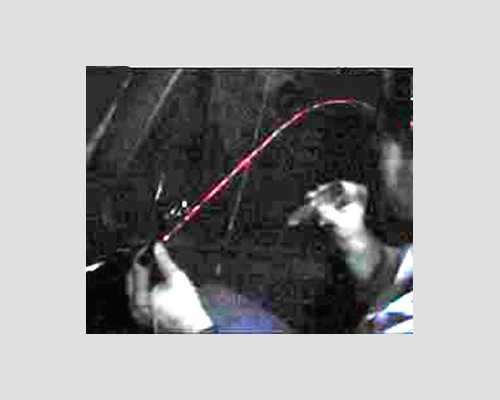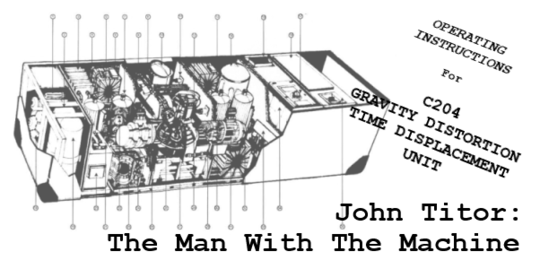286
93
Let's say a time traveler from the year 2100 comes back to the year 2015. He has a very important message: [horrible thing] is about to happen soon, and he wants to warn us so we can avoid/prevent it. (Yes, this assumes a model in which "paradoxical causality" is not an issue.) The problem is if he goes around saying "I'm a time traveler from the future," no one's gonna believe him. They'd dismiss him as a crackpot.
So, he brings along proof, in the form of...?
This is actually a pretty tricky question, if we place two restrictions on it:
He does not have a "time machine". His device sent him back without coming along with him, so he has no way to demonstrate that he's a time traveler by actually demonstrating time travel. (Just as an aside, this is very much on purpose; he doesn't want knowledge of the mechanics of time travel to fall into the hands of people who might use it for nefarious purposes, and part of his plan is to actively sabotage scientific research that led to the development of time travel.) The thing he used--let's just call it a "time catapult"--was able to send a small payload back in time, maybe comparable volume to a phone booth, certainly quite a bit less than the interior of a car.
He wants to get the issue of establishing proof of identity over with and out of the way as quickly as possible and move on to more important things, like averting future disasters. This is a real issue; he can't go back arbitrarily far in time; the Temporal Frobulence Theorem shows that it becomes extremely unsafe the further back you go; it's a bit of a stretch even to reach our time!
The two obvious candidates for proof are future technology and knowledge of future events. The first is tricky, because current technological advancement puts us perilously close to the boundaries of Clarke's 3rd Law: any sufficiently advanced technology is likely to not be easily recognizable as such, and anything insufficiently advanced would be likely to just look like someone working in his garage made a breakthrough in some field, and that's pretty cool and all, but obviously it doesn't prove he's from the future.
The second is also kind of tricky. There are two major classes of unpredictable future events: natural and manmade. Bringing official government records of earthquakes, hurricanes, etc. could certainly establish that he is who he says he is, but it would take a lot of valuable time for Mother Nature to furnish the proof. On the other hand, if he predicts unpredictable manmade events, there are all sorts of potential troubles there. Point out the time and place of a major crime? Obviously, he was in on it; let's arrest him! Produce a table of stock market closing values for the next month? Well, he might be right for a day or two (coincidentally, of course!), but as soon as someone starts using the data he provides and attempting to profit by making trades based on it, the Butterfly Effect flutters in and destroys the accuracy of the data.
So, what would be the quickest, most efficient way for our unfortunate herald to establish beyond reasonable doubt that he is a time traveler with accurate knowledge of future events, and at the same time get enough people to listen to him so he can spread his doomsday message?


1"part of his plan is to actively sabotage scientific research that led to the development of time travel" - Won't that cause a paradox? – colmde – 2016-08-15T12:07:35.683
@colmde Only if you accept the idea of paradoxes, which generally results from incorrectly conflating time and causality :) – Mason Wheeler – 2016-08-15T12:23:47.840
I don't think I can answer this but I have an idea of birth certificates for any babies born month after the date he travels back to. – Mendeleev – 2016-12-18T19:17:30.003
I would assert this, your positing this from a rather interesting point. You do not mention that the person knows that he did this because he has and it is recorded via some method. Meaning in simple terms, he is the first instance of time and he is influencing past instances of himself which is a problem because a past instance can not be the first instance. This can be solved if you allow time to NOT change your past. Instead it creates a new version of events. So it is a loop back, fork two instances, instance A is the original instance and instance B is the modified instance. – Enigma Maitreya – 2017-03-14T05:41:06.490
you state that paradoxical causality is not an issue, which would mean that the stock prices should not fluctuate when he provides this information... – marcellothearcane – 2017-03-25T17:20:25.617
@marcellothearcane No, what I mean is that, for example, killing your mother before you were born does not cause you to paradoxically vanish, because time is not the same thing as causality. Your birth is already an event in the causal chain that led up to your current actions, and changing the timeline as part of your current actions does not alter that causal chain. – Mason Wheeler – 2017-03-26T02:58:34.217
This seems to depend on the impending calamity. If a comet will hit Earth, simply point at the comet and we'll get it, without having to believe you're from the future. If [scientific thing we don't understand], then you'll have a hard time with that. You'd have to "invent" the science first, which might make a catch-22 in the story you're painting. – 458 – 2018-04-05T17:58:35.047
I strongly advise you from doing this - Time Crime Police will arrest you and believe me, I'd rather won't mess with them! – shabunc – 2019-10-07T15:26:52.780